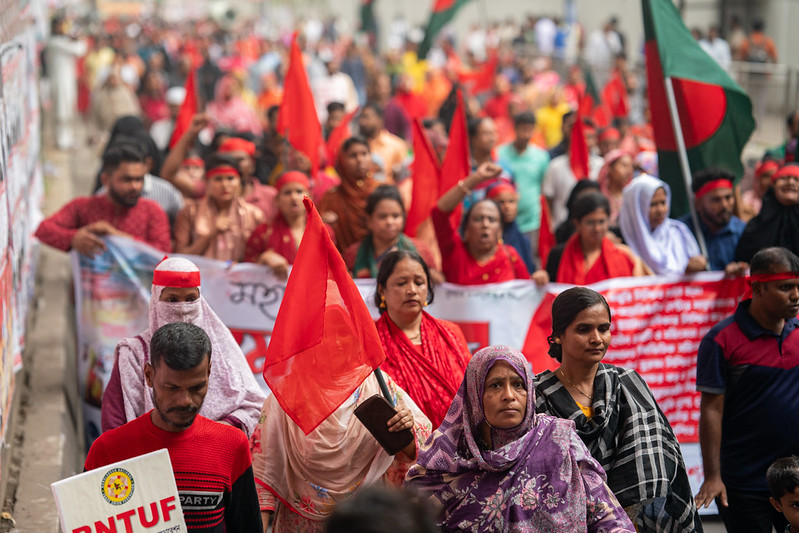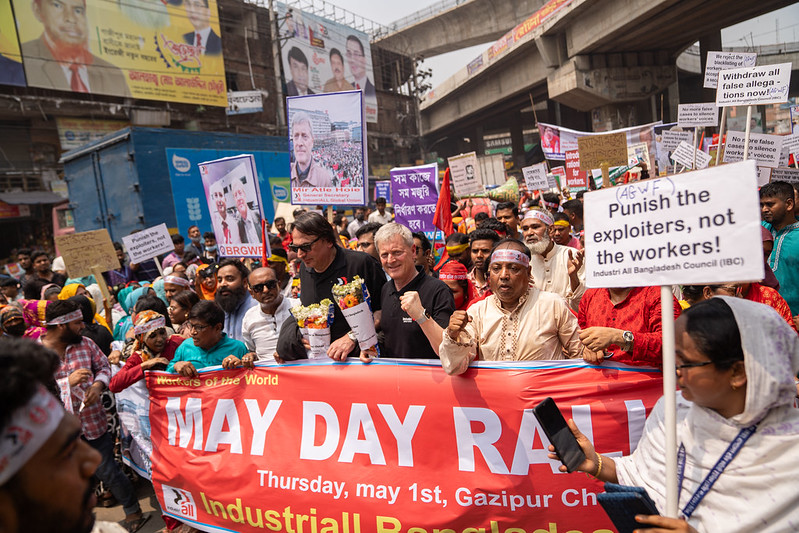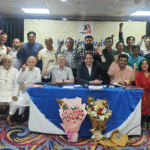8 May, 2025Workers in Bangladesh face mounting challenges, from poverty wages and unsafe conditions to attacks on union rights. During a visit last week, IndustriALL leadership reaffirmed solidarity with workers, urging unions to stand united in the fight for living wages, safe workplaces, and the right to organize. As labour reforms and international standards are debated, the call for a worker-led push for justice is more urgent than ever.
On May Day, IndustriALL marched the streets of Dhaka, shoulder to shoulder with thousands of workers, celebrating the struggles and victories of workers’ movement. While marking the international labour day, affiliates extended a warm welcome to IndustriALL’s leadership. Addressing a large gathering of workers, general secretary Atle Høie, said:
“We stand in complete solidarity with the workers of Bangladesh and avow to advance the fight for a safe and secure workplace and living wage for all workers. We must fight unitedly to ensure and uphold the right to freedom of association and collective bargaining for all. IndustriAll affiliates across the globe are together with you in the struggle to advance workers’ rights in Bangladesh.”

During the visit, IndustriALL’s leadership met with affiliates to discuss in detail the implementation of the ILO Roadmap and the report of the Labour Reform Commission set up by the interim government. Atle Høie and assistant general secretary Kemal Özkan also met with the Commission chairperson to discuss the report’s key issues and explore possible solutions.
One of the major concerns raised by union leaders was the abjectly low minimum wage of garment workers in the country, which despite promises by interim government are yet to be reviewed. Poverty wages have been pushing workers to work overtime, impacting their health and safety at the workplace. Leaders also shared that workers’ right to freedom of association remains under attack in the Export Processing Zones, while registration of trade unions is marred by tedious paperwork and bureaucratic processes. Blacklisting of workers, as a form of punishment for participation in trade union activities, is being used by the employers to deter workers from joining unions.
“The challenges ahead can only be fought if the affiliates operate in unity. Division is seen as weakness, is exploited by government and employers and does not serve the millions of workers that need protection. We urge our affiliates to sort out their differences and unite behind a joint set of priorities and goals,”
said Kemal Özkan.
During the visit, leadership also met government representatives to discuss the recommendations of the Labour Reform Commission, the implementation of the ILO Roadmap, as well as the country’s preparedness to implement the Hong Kong Convention on safe and sustainable shipbreaking, set to come into force in June this year. According to affiliates, Bangladesh is likely to ratify ILO Conventions 155 and 187 by the end of 2025.




